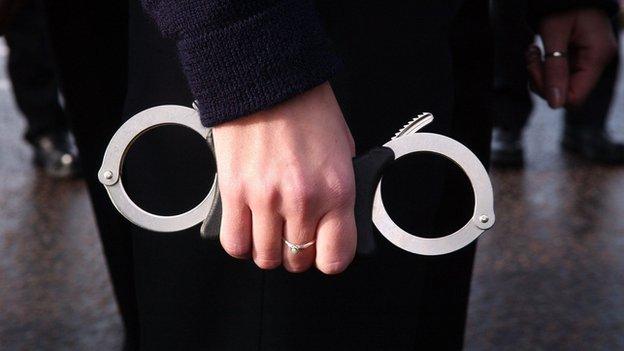Is the European Arrest Warrant worth it?
- Published
- comments
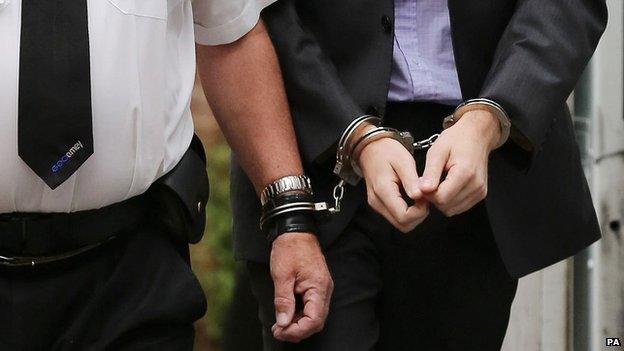
The home secretary says the European Arrest Warrant is about fighting crime across Europe - but her opponents say it's just another cave-in to a growing Brussels superstate, weakening our Parliament and courts.
There is a lot at stake in Monday's Commons vote on joining a raft of European Union joint measures on crime and justice - but the vote isn't actually about the EAW.
Thanks to a legal technicality, Theresa May only needs to ask MPs to approve some of the 35 measures. The EAW is not one of them.
This has wound up lots of MPs who believe they were promised a proper debate because of what the package really means.
The question at the heart of the European justice measures is how far co-operation between the UK and the EU should go - and whether member states should be pooling sovereignty on home affairs and justice simply to make the life easier for the police.
Before the 2009 Lisbon Treaty - a major rewriting of EU rules - member states co-operated on a raft of joint justice measures.
Under the treaty, the EU's Court of Justice and the European Commission, which comes up with ideas and policies in the first place, take some command, control and oversight.
Successive British governments - Labour and Tory - have resisted transferring any justice powers to Europe, and ministers negotiated a "block opt-out" of all of the 133 measures that would come under the new system.
But the government says it wants to opt in to 35 of them because they benefit the UK.
Parliament's European Scrutiny Committee has been quite clear that this means an increase in EU powers which would, ultimately, "diminish the role and function of domestic courts in the UK as well as Parliament".
So the real question is not just what the measures do - but is the transfer of power worth it?
Wanted across borders
The decade-old EAW is the most important by far of the 35 measures.
It replaced piecemeal extradition arrangements between member states in an effort to speed up the transfer of suspects.
One of its most famous early successes was the 56 days it took the UK to get hold of one of the would-be 21/7 suicide bombers after he fled to Italy.
Over the last five years, more than 5,000 people have been extradited from the UK on an EAW.
That number includes more than 200 alleged killers and rapists and a handful of suspected terrorists.
In return, the UK has received almost 650 people that it wanted to bring before the courts, including 51 alleged killers.
More than half of those returned have been British citizens, including 62 wanted for child sex offences.
Critically, argues the Home Office, there are 22 EU member states which could refuse extradition requests.
The infamous "Costa del Crime" in Spain - a former haven of British gangsters - didn't get that nickname for nothing.
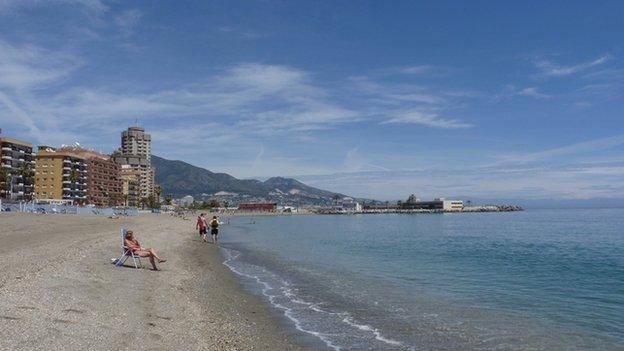
Spain's Costa del Sol became known as the "Costa del Crime" because many British fugitives went there
Critics say there are many problems with the EAW.
It is a blunt tool that has led to many unjust extraditions and arrests.
They argue that British citizens extradited under EAWs don't have proper redress because the UK has handed powers over to Brussels rather than negotiating a UK-EU extradition treaty.
The government argues that it has reformed the EAW to ensure nobody can be extradited for a minor offence or where there is a risk of spending ages in jail - and this has allowed our courts to block 21 requests since July.
It says the EAW and other 34 measures benefit the nation.
The Schengen Information System II is one of them.
It is a European-wide database that alerts agencies to missing people and criminals on-the-run who may turn up at your border.
'Yobwatch'
Another opt-in allows national agencies to share images of bogus identity documents that are in circulation.
The government believes being part of measures like these, external - broadly aimed at increasing co-operation - helps keep people safe and gives London greater influence over how other nations go about fighting cross-border crime.
That doesn't wash with critics who see this as the thin end of a great big Brussels wedge.
For example, one measure relates to co-ordinating and sharing intelligence on suspected hooligans.
On the face of it, a European "yobwatch" system sounds like a good idea - nobody wants them travelling 1,000s of miles to get drunk and start a fight.
But the problem, say critics, is measures like this solve a problem that doesn't exist - they say police can already co-operate effectively without Brussels needing to stick its oar in.
In a worst-case scenario, could the European Commission end up trying to tell British police how to manage a Champions League game? Probably not.
But that's the kind of problem critics fear we will eventually see if the UK doesn't resist the EU's roll into justice and crime-fighting.
- Published11 November 2014
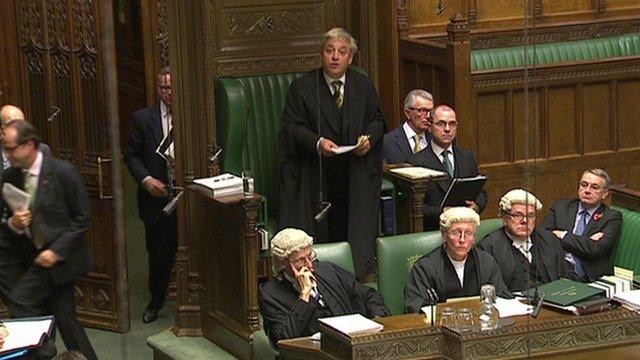
- Published5 December 2014
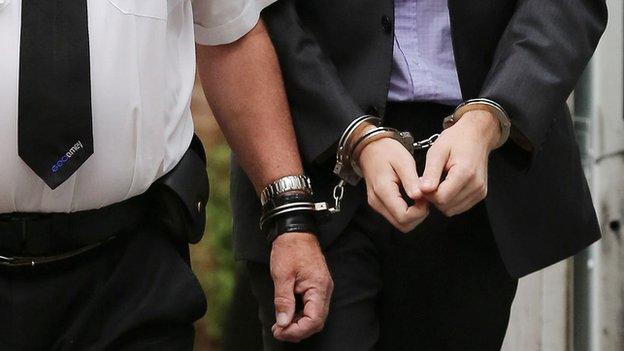
- Published10 November 2014

- Published9 November 2014
